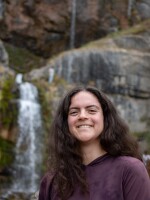Halfway through 2025, the Salt Lake City Police Department has issued more citations for illegal camping than they did in all of 2024. As of June 8, it was 574, compared to 488 last year.
This follows the implementation of a new public safety plan in January. It called for more scrutiny and aggressive prosecution of repeat offenders in the Downtown Safety Initiative area. The geographic boundaries of the area are not public, said SLCPD spokesperson Brent Weisberg.
The increase could come from a combination of more illegal camping and greater enforcement, he said. Camping citations were already on the rise before the plan took effect, more than doubling between 2023 and 2024.
“We know that when families can't use parks, when businesses are broken into, when trails become tent sites, we have a duty to act,” Weisberg said. “And that's the expectation from the community members we hear.”
The department works closely with social workers and other providers to offer treatment and resources to people experiencing homelessness, he said.
“We recognize that citations alone won't be the solution, but neither will ignoring the problem.”
Still, the Downtown Safety Initiative has brought unnecessarily harsh penalties to people living on the streets, said Hannah Sakalla, a trial attorney with the Salt Lake Legal Defenders Association, which provides legal counsel to people who can’t afford a private attorney.
In the past, she said the police would sometimes find someone camping illegally and ask them to move. Now, more people are receiving citations and being taken to jail. She said the new policy has made it harder to predict her clients’ options.
“We can't give legal advice because we don't know what the judge is going to sentence the person to, how persuaded they are that there needs to be a Downtown Safety Initiative,” she said. “It just feels like a huge escalation that feels very random, or felt very random for us.”
The city’s public safety plan cited inconsistent pretrial release as an issue. Now, Sakalla said, more people are being held in jail until their trials.
Kseniya Kniazeva, founder and president of the nonprofit Nomad Alliance, said citations will only make it harder for people to find stable housing.
“The more time people have to spend in court and legal battles and trying to fight these tickets, or even having warrants and spending time in jail, losing their things, the longer this epidemic is going to continue,” she said.
Being homeless in itself is not a crime, said Salt Lake County District Attorney Sim Gill. He’s directed his team of prosecutors to focus on habitual offenders.
“The direction that I've given to the city prosecutor side of the shop is saying, ‘focus on those top 50 or 60 people,’ and then, of course, we prosecute normally, whatever we would do with the rest.”
Sakalla’s clients have had multiple encounters with law enforcement, she said, but for offenses like camping, trespassing or obstructing the sidewalk.
“It's applied pretty specifically to a population whose existence seems to be criminalized,” she said.
Sakalla has heard prosecutors say repeat offenders are using up exorbitant resources.
“And in my mind, I'm like, OK, so don't charge them,” she said. “That seems like the easiest way to reduce the resources used on them.”
The Downtown Safety Initiative applies to arrests in a geographic area, and the extra scrutiny that comes with that classification has also extended to people without criminal records, Weisberg said. The department is currently in talks to narrow the classification and focus more on “high utilizers.”
Still, the new policy has compelled Sakalla to take more cases to trial rather than accept what she sees as unreasonable punishments.
“We’ve seen a huge bloating of cases filed and cases prosecuted,” she said.
Macy Lipkin is a Report for America corps member who reports for KUER in northern Utah.






